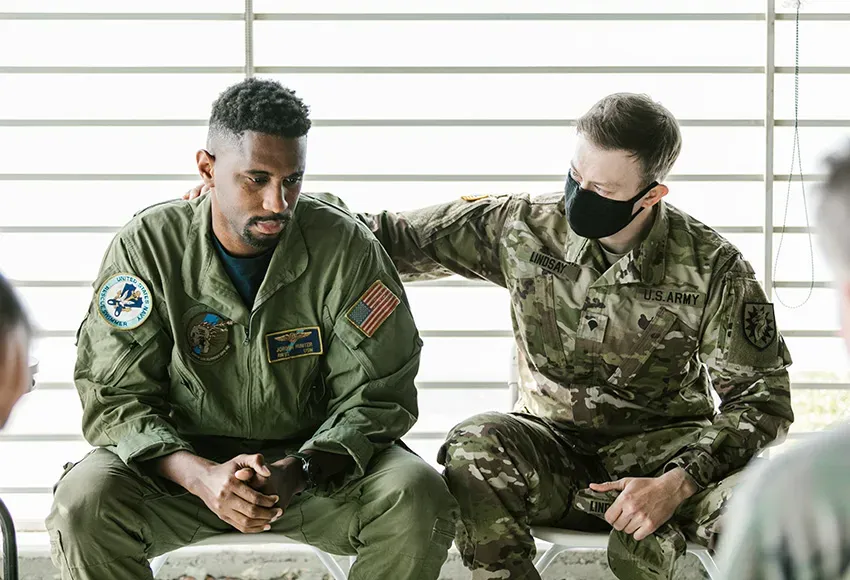Too many veterans lose their lives to drug and alcohol addiction, whether because of health problems, suicide, or overdose. Veterans often battle these problems in silence and do not necessarily seek help.
While on Memorial Day we take the time to honor the memory of the men and women who lost their lives fighting in the nation's wars, we must never lose sight of those veterans who made it home and need our help.
According to the National Survey on Drug Use and Health, over 3.9 million veterans have a substance use disorder or mental illness. There are over 550,000 veterans in Washington, most of whom served in wartime.
Additionally, substance use disorders significantly increase suicidality among veterans aged 18 and older. Suicidal thoughts and behaviors are also common among veterans aged 18–49, but often these issues get overlooked, and many veterans are struggling in silence.
Various causative factors lead to drug and alcohol use among veterans. Many struggle to adjust to civilian life, and they may experience financial hardships or difficulty finding employment or accessing benefits.
Others are dealing with mental and emotional problems, possibly compounded by physical injuries and chronic pain. Untreated, these can impact every aspect of a veteran's life, all leading to using drugs or alcohol to cope with their physical or emotional pain.
Veterans also face barriers when accessing treatment and support. This can include the costs involved, health insurance gaps, or the stigma regarding addiction. There are often problems with inadequate funding and limited access to treatment for vets in rural areas.
Support and treatment
"Early intervention saves lives, but many families struggle to know where to begin or how to intervene," said Michael Leach of Addicted.org.
Outside of the usual services provided by the US Department of Veterans Affairs and the VA facility locator, other support options include the following:
• The Washington State Department of Veterans Affairs, which provides information on benefits, services, and programs
• Helpful hotlines, such as the Veteran Crisis Line at 1-800-273-8255, and the Lifeline for Vets at 1-888-777-4443
• SAMHSA (the Substance Abuse and Mental Health Services Administration), which has a treatment facility locator through which one can search for specific treatment options for veterans
Family support is also critical. It's okay to have these difficult conversations and speak to loved ones openly and honestly about their drug or alcohol use. Family can also intervene and help them find treatment. The key is to be patient and show compassion for what they are going through, and to reassure them that everything is treatable.
When communities and families come together to help veterans, amazing things can happen. It's never too late to offer a helping hand.
Veronica Raussin is a community outreach coordinator for https://www.addicted.org/. She is passionate about spreading awareness of the risks and dangers of alcohol and drug use.


